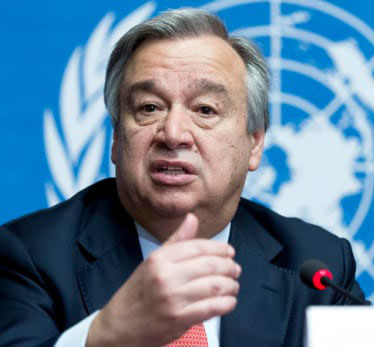Caribbean Community (CARICOM) Heads of Government have offered their support to the decision to use the International Court of Justice (ICJ) to resolve the border controversy between Guyana and Venezuela.
The communiqué, issued at the conclusion of the 29th Inter-sessional meeting of the Conference of CARICOM Heads of Government, February 26th to 27th, stated that the members of the community “expressed their full confidence in the decision of the United Nations Secretary-General, in exercise of his authority under the Geneva Agreement of 1966.”
The Heads of Govern-ment also “reiterated the firm and unequivocal support of the Caribbean Community for the maintenance and preservation of Guyana’s sovereignty and territorial integrity.”
UN Secretary-General H.E. António Guterres on January 30th, 2018 recommended that the Guyana/ Venezuela border controversy be referred to the ICJ. According to Guterres, he had carefully analysed developments in 2017 in the Good Offices process and concluded that significant progress has not been made toward arriving at a full agreement for the solution of the controversy. The decision came after 27 years of attempting to utilize the Good Officer process to arrive at a solution to the controversy.
Over the last three years, Guyana has been seeking recourse to the ICJ to settle the controversy, which emerged in 1962 when Venezuela revived its claim to Essequibo.
The Geneva Agreement, which was established to resolve the disagreement between Venezuela and the United Kingdom prior to Guyana’s independence, confers on the Secretary-General of the United Nations the power to choose the means of settlement of the controversy from among those that are contemplated in Article 33 of the United Nations Charter. The Geneva Agreement also provides that if the means so chosen does not lead to a solution of the controversy, the Secretary-General is to choose another means of settlement.
Guyana’s border with its western neighbour was conclusively settled via the Arbitral Award of 1899. However, shortly before Guyana’s independence in 1966, Venezuela began contending that the award was null and void. Consequently, the Geneva Agreement was signed with the aim of amicably resolving the controversy that had arisen as a result of this claim.









